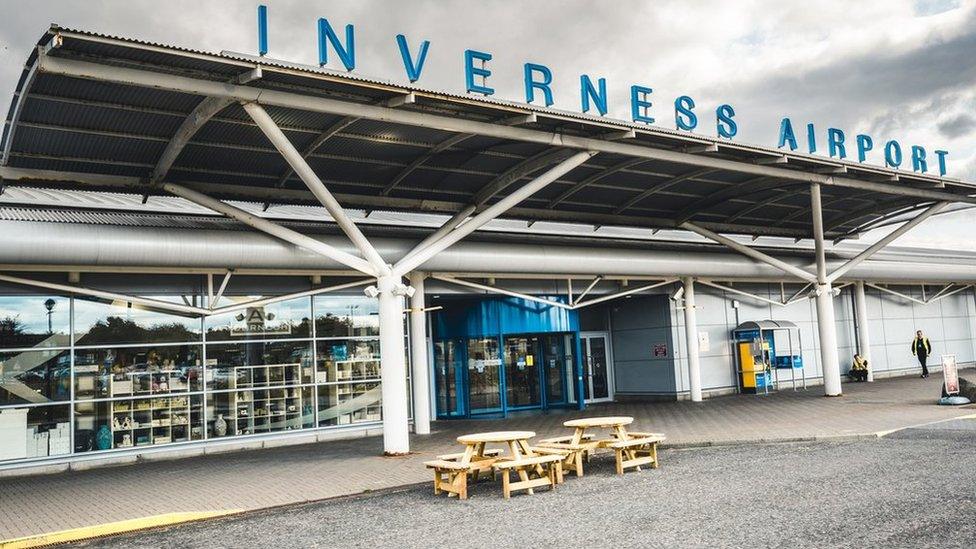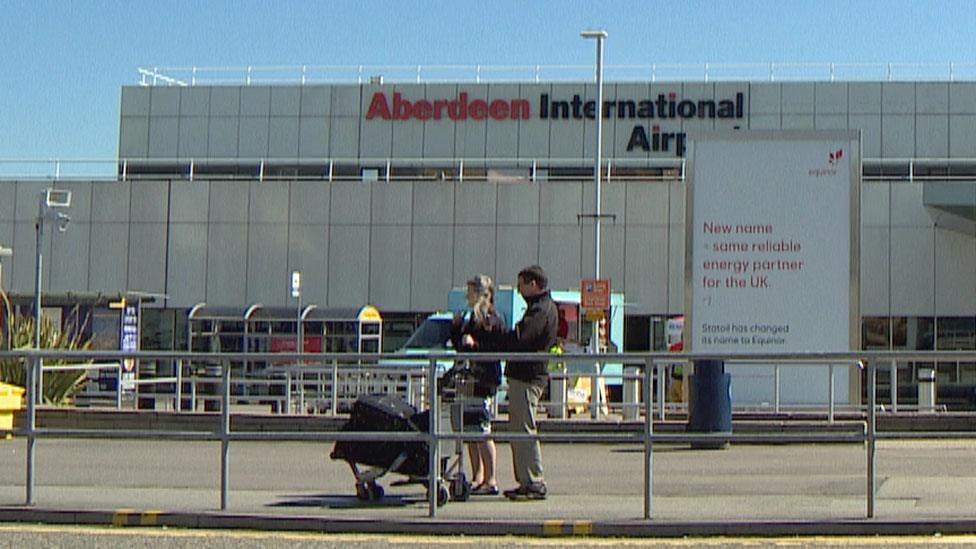Call for end to Highland airport 'tax haven'
- Published

The "tax haven" status of Inverness Airport has been challenged by rival operators.
People flying to and from the Highland capital have been exempt from paying Air Passenger Duty (APD) since 1994.
Scotland-wide plans to abolish APD were dropped in May and now Aberdeen Airport is calling for greater parity with its Inverness rival.
Highlands and Islands Airports Ltd said the exemption "must remain in place to protect remote and rural communities".
Extending the APD exemption to Aberdeen or for the tax to be charged on some flights from Inverness have been mooted.
The call comes from the independent consultative committee which advises Aberdeen International Airport.
Long-haul flights
Committee chairman Dr Peter Smart said passengers on a long-haul flight, routed through London Heathrow or Amsterdam, could currently save £78 on a ticket by flying through Inverness instead of Aberdeen, 92 miles away.
He said: "What we're seeking is action from government to ensure that Aberdeen and Inverness are treated identically.
"It's for government to decide how but the two options seem to us to be either exemption for flights from Aberdeen or levying APD on flights from Inverness to destinations outside the highlands and islands area.
"It's about time Inverness is required to operate just like any other airport of its size, on a commercial basis.
"What might have been appropriate a few years ago, when its passenger numbers were less than half a million, cannot, we feel, be justified now."
Dr Smart said that separate public subsidies for a route out of Dundee Airport meant, "one might compare Aberdeen to a highly taxed island sitting between two tax havens".

Aberdeen was one of the Scottish airports which backed the Scottish government's now abandoned plan to reduce air departure tax by 50% before eventually abolishing it
The independent consultative committee which advises Aberdeen International Airport made its call in a submission to the UK government's consultation on aviation strategy for the next 30 years.
The Inverness APD exemption is estimated to be worth about £11m for passengers using the airport.
The committee said the exemption should remain for flights wholly within the Highlands and Islands.
Inverness Airport has enjoyed strong growth in recent years, with Civil Aviation Authority figures showing it received 893,000 terminal passengers in 2018 up from 607,000 in 2013.
Over the same timeframe Aberdeen Airport went from 3.4 million to three million passengers.
This period included a downturn in the oil industry and an increase in tourists visiting the Highlands.
Highlands and Islands Airports Limited (Hial) - the publicly owned operator of Inverness - received £29m from the taxpayer in 2017-18.
A Hial spokesman said: "Air connectivity is critical for the Highlands and Islands, and our position on the existing exemption is unchanged - it must remain in place to protect remote and rural communities."
The Scottish government said there was a duty on all governments, businesses and communities to increase their action to tackle greenhouse gas emissions - but there were no plans to end the exemption for Inverness Airport.
A spokesperson said: "In light of the updated advice from the UK Committee on Climate Change - and the new net zero target proposed as a result - we have taken the difficult decision that reducing Air Departure Tax (ADT) is no longer compatible with our climate responsibilities and acted accordingly.
"Air connectivity is critical for the Highlands and Islands, and our position on the existing exemption is unchanged - it must remain in place to protect remote and rural communities."